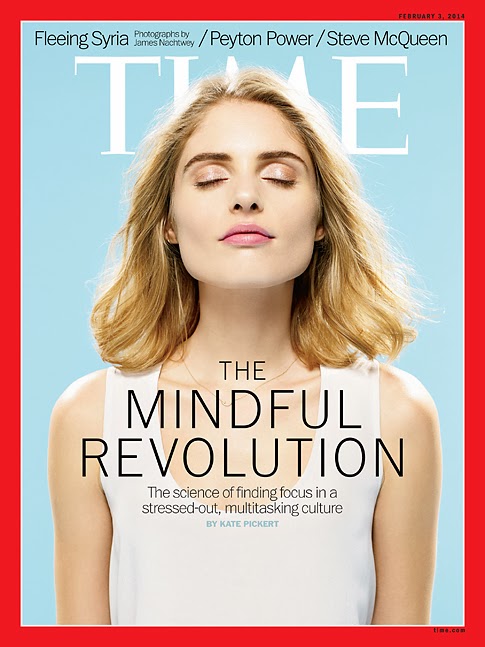Mindfulness
has made the cover of Time magazine. This is good news.
It means people who otherwise wouldn’t know about mindfulness will read
the essay. The essay states what
mindfulness is and why we need it.
Mindfulness is awareness of the five senses—what we see, hear, taste, touch, and smell—and awareness of our emotions and thoughts. Along with this is an acceptance of those senses, emotions, and thoughts. This is often the more difficult part of mindfulness because we quickly judge or label our senses, thoughts, or emotions. Acceptance is acknowledgement of the present moment. Often, however, we’re too hurried, busy, distracted, and caught up in storylines that don’t really involve us to even notice the moment, nonetheless accept it. Acceptance doesn’t mean we like or dislike it. Acceptance means this is what is right now. So seldom do we realize this.
The
Time essayist also wrote a lot about
how technology has distracted us and how this use of technology, in particular
cell phones, has created the current interest and need for mindfulness. Being mindful of when we use our cell
phones is more than societal courtesy; it’s about being more aware of the
moment. She writes about how, for example, two
people are at a restaurant, one leaves, and the other immediately gets on
his or her cell phone.
Mindfulness encourages us to just notice where we are rather than use
our phone for whatever reason.
Using our phones during conversations is just as prevalent, and again,
mindfulness would encourage us to temporarily turn off our phones and just be
aware of the conversation—the other person and ourselves--the true present
moment. Mindfulness doesn’t mean
never using your cell phone to text or look up something on the internet, but
it does mean becoming more mindful of when and why you are using it.
